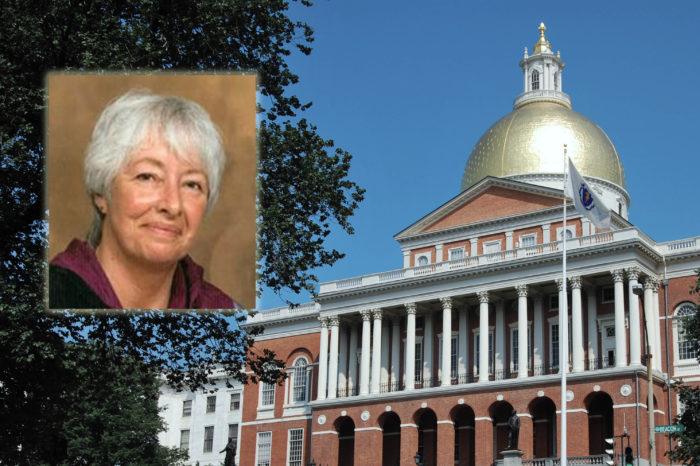Remembering Barbara Anderson
Barbara Anderson’s passing marks the loss of a good friend of the taxpayers of Massachusetts. Like revolutionary patriot Sam Adams, she had the ability to organize ordinary citizens in revolt against powerful interests, and to win enduring victory on their behalf.
It has been noted in the days following her death from leukemia that Barbara was a mainstay of the radio program “The Governors.” Barbara’s accomplishments earned her that title—and more. Her work with Citizens for Limited Taxation (CLT) to cap the annual growth of municipal property taxes in 1980 may have had the greatest impact on the economic well-being of Massachusetts residents of any statutory change made during the past 50 years. By this single accomplishment, she left a legacy exceeding that of many recent Massachusetts governors and legislative leaders.
Barbara’s deep commitment to civic work was leavened with playful humor and real intellectual curiosity about the workings of government. Her views were grounded in a fierce individualism and empathy for ordinary working people—both of which gave her the ability to articulate positions in a voice and manner that the public could relate to.
She symbolized a very basic American ideal: with hard work and perseverance, anything can be accomplished. Her roots were humble; her satisfaction didn’t come from possessions but from speaking truth – and common sense – to power. Barbara was a force of nature, as her sparring partner Jim Braude noted. She was fun. She was someone who could wax poetic about the culture of the ancient Greeks in one breath while, in the next, demonstrating an unparalleled understanding of taxpayer sentiment shared by her fellow citizens.
She and her CLT team took on the established ways of Beacon Hill and frequently won.
It is hard to imagine the growth in local and state government spending Massachusetts residents would have faced had it not been for Barbara’s many successful campaigns.
Barbara defined an era in political history, a quarter century during which popular sentiment in Massachusetts—and California—took on our institutions. It was a time when Ronald Reagan, dozens of reform-minded governors, and popular votes through petition initiatives all sought a change in direction.
Barbara’s commitment to engaging in the public debate aimed to limit government and its intrusions in individual lives. After leading a successful ballot initiative in 2000 to roll back the income tax rate to 5 percent, CLT suggested that those members of the public who wanted higher taxes be given the opportunity to pay higher taxes. To CLT’s surprise, the legislature agreed and the Department of Revenue printed tax forms that included the option to pay a higher tax rate. In getting this measure passed, Barbara dispelled the myth that people want to pay higher taxes. In recent years, only a tiny fraction of Massachusetts’ 3.5 million tax filers opted to pay the increased rate, generating a couple of hundred thousand dollars.
Barbara was a good friend to freedom; she will always remain an inspiration to Pioneer Institute.



